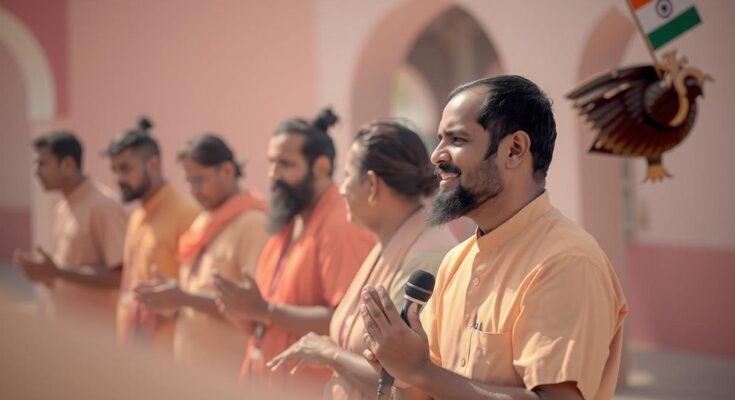Expat Bangladeshi Hindus urged India to seek UN sanctions against Bangladesh in light of increasing violence against Hindus. They emphasized the need for global intervention, completion of the 1947 population exchange for displaced minorities, and the creation of protected zones in Hindu-majority regions during their visit to New Delhi. Their advocacy highlights a historical context of communal tensions and a dramatic decline in the Hindu population in Bangladesh.
A group of expatriate Bangladeshi Hindus, aligned with the Global Bengali Hindu Coalition, recently urged the Indian government to advocate for United Nations sanctions against Bangladesh. This plea is aimed at addressing the alleged oppression faced by Hindus and religious minorities in Bangladesh following the political changes after the August ousting of the Sheikh Hasina government. The delegation, consisting of individuals from Europe and North America, expressed their concerns at a news conference in New Delhi, emphasizing a five-point action plan to safeguard vulnerable communities.
The group’s recommendations included calls for global intervention and the potential deployment of UN peacekeeping forces in Bangladesh to protect minorities. Additionally, they advocated for completing the “unfinished population exchange” from the 1947 Partition to facilitate the resettlement of displaced minorities. The community leaders articulated the necessity for the Indian government to press the interim administration in Bangladesh to establish protected zones in Hindu-majority areas.
Sitangshu Guha, a prominent figure in the group, highlighted the historical relationship between India and Bangladesh, urging India to assist the approximately 20 million Hindus in Bangladesh facing existential threats. Furthermore, the group underscored the importance of reassessing India’s support of Bangladesh’s contributions to UN peacekeeping operations, which they perceive as a relevant measure of accountability. They reiterated that attacks on the Hindu population continue unabated, calling for action from India to alleviate these injustices.
Recent reports indicate a significant decline in the Hindu population in Bangladesh, dropping from 22% in 1951 to just under 8% by 2022. Members of the group detailed instances of violence targeting Hindu temples and individuals, which they claim go unaddressed by authorities. They reported 51 cases of attacks on religious sites and community resources between August and December, underscoring the urgency of their advocacy efforts and the necessity for international support to protect Bangladesh’s Hindu minority.
The article discusses the urgent appeals made by a group of expats of Bangladeshi Hindu descent, who are particularly concerned about the safety and rights of Hindus and religious minorities in Bangladesh. This follows recent political upheaval that has reportedly intensified discrimination and violence against these communities. The strife stems from a perceived failure of the Bangladesh government to protect minority rights, resulting in calls for intervention and support from the Indian government and the international community, highlighting the historical context of the region’s communal dynamics, especially since the Partition.
In conclusion, the expatriate Bangladeshi Hindu group’s appeals signify growing concerns about the plight of Hindus in Bangladesh amidst political instability. Their calls for UN sanctions and intervention reflect a desperate need for international awareness and action to protect vulnerable communities. Additionally, the significant decrease in the Hindu population over decades warrants serious scrutiny of the conditions faced by minorities in Bangladesh, underscoring the importance of support from neighboring countries and global institutions in safeguarding human rights.
Original Source: www.hindustantimes.com




